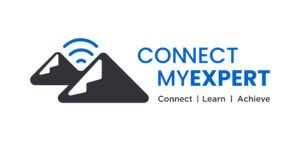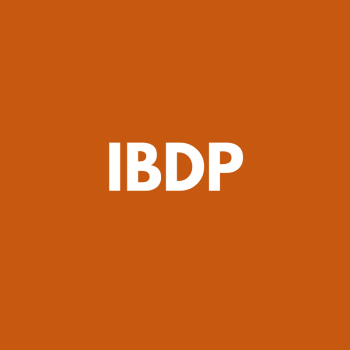1. Why Study IBDP Computer Science?
The Gateway to Digital Innovation
IBDP Computer Science is a dynamic course designed to provide students with a comprehensive understanding of computational thinking, programming, and the underlying principles of digital technologies. This course prepares learners to tackle complex challenges in a rapidly evolving digital world.
Key Benefits of Studying IBDP Computer Science
- Foundational Knowledge: Gain expertise in algorithm design, programming languages, and computer systems.
- Problem-Solving Skills: Enhance critical thinking through coding and computational logic.
- Global Relevance: Understand the impact of technology on society and ethical considerations.
- Career Preparation: Develop skills for fields like software engineering, artificial intelligence, data science, and cybersecurity.
Skills Developed
- Proficiency in programming languages and algorithms.
- Logical reasoning and analytical thinking.
- Collaborative project development.
- Awareness of ethical and societal implications of technology.
2. Core Structure of the IBDP Computer Science Curriculum
The curriculum comprises core topics, optional topics, and practical application through the internal assessment.
Core Topics (SL and HL)
- System Fundamentals
- Understanding system design, hardware, software, and networking.
- Examining data security and backups.
- Computer Organization
- Insight into binary systems, CPU architecture, and memory hierarchy.
- Study of logic gates and machine-level instructions.
- Networks
- Exploring protocols, topologies, and the internet of things (IoT).
- Computational Thinking, Problem-Solving, and Programming
- Algorithm development and computational logic.
- Hands-on programming in languages like Java, Python, or C++.
- Abstract Data Structures (HL only)
- Advanced data structures like stacks, queues, linked lists, and trees.
- Algorithm efficiency and big-O notation.
- Resource Management (HL only)
- Understanding resource allocation, scheduling, and concurrent systems.
- Control (HL only)
- Concepts of control systems, including robotics and automation.
Optional Topics (SL and HL)
Students can choose one of the following:
- Databases: Data modeling, SQL, and data management.
- Modelling and Simulation: Designing and analyzing simulations.
- Web Science: Study of web development, web standards, and dynamic websites.
- Object-Oriented Programming (OOP): In-depth exploration of OOP principles and applications.
3. Comparing SL and HL in IBDP Computer Science
SL Overview
- Focuses on foundational topics and basic programming.
- Approximately 150 hours of instruction.
- Suitable for students pursuing non-technical fields.
HL Overview
- Covers all SL topics with additional advanced concepts like abstract data structures and control systems.
- Approximately 240 hours of instruction.
- Recommended for students aiming for technical careers or competitive university programs.
Key Differences
| Aspect | SL | HL |
| Depth of Content | Foundational understanding. | Advanced exploration and analysis. |
| Practical Component | Basic coding projects. | Extensive programming challenges. |
| Additional Topics | None | Abstract Data Structures, Control. |
4. Marking Scheme and Assessment Structure
Internal Assessment (IA)
The IA contributes 30% (SL) and 20% (HL) to the final grade. It involves a student-designed solution to a real-world problem, implemented using a programming language.
- Criterion A (6 marks): Planning and analysis.
- Criterion B (12 marks): Solution design and development.
- Criterion C (6 marks): Functionality and extensibility.
- Criterion D (6 marks): Evaluation and testing.
External Assessments
- Paper 1 (40% SL, 40% HL)
- Tests core topics through short-answer and extended-response questions.
- Paper 2 (30% SL, 20% HL)
- Focuses on the optional topic selected by the student.
- Paper 3 (HL Only, 20%)
- A case study-based paper analyzing a contemporary computing issue.
Marking Scheme Insights
| Component | Marks | Weightage |
| Paper 1 | 75 | 40% |
| Paper 2 | 50 | 30-20% |
| Paper 3 (HL) | 25 | 20% (HL Only) |
| Internal Assessment | 34 | 30% (SL), 20% (HL) |
5. The Internal Assessment: Bridging Theory and Practice
The IA allows students to apply theoretical knowledge to real-world problems.
Tips for a High-Scoring IA
- Identify a Unique Problem: Choose a practical issue relevant to your community or interests.
- Plan Extensively: Develop a clear roadmap and document each step.
- Use Effective Tools: Employ programming environments like Python, Java, or C++.
- Test Thoroughly: Validate functionality and document iterative improvements.
Example IA Topics
- Developing a student attendance management system.
- Creating a personal finance tracker.
- Designing a basic game engine or simulation.
6. Recent Updates to the IBDP Computer Science Curriculum
Curriculum Enhancements
- AI and Machine Learning: Increased focus on algorithmic thinking and AI applications.
- Data Ethics: Inclusion of ethical considerations in data management and cybersecurity.
- Hands-On Learning: Greater emphasis on project-based assessments.
7. Career Opportunities with IBDP Computer Science
University Pathways
- Computer Science: A direct pathway to software development and systems design.
- Data Science: Focus on data analysis and predictive modeling.
- Cybersecurity: Prepares students for roles in network security and ethical hacking.
Job Prospects
- Software Developer.
- Data Analyst.
- Systems Architect.
- Machine Learning Engineer.
8. Succeeding in IBDP Computer Science
Study Strategies
- Understand the Fundamentals: Master basic programming and algorithms.
- Practice Regularly: Write code daily to build proficiency.
- Engage with Case Studies: Analyze real-world applications of computing principles.
Time Management Tips
- Allocate time for each core topic weekly.
- Use coding challenges to reinforce learning.
9. Top Resources for IBDP Computer Science Success
Books and Study Guides
- Oxford IB Diploma Programme Computer Science: Comprehensive coverage of the syllabus.
- Cambridge Computer Science Resources: Advanced insights and practice questions.
Mock Papers and Past Papers
- IB Documents Repository: Access official IB past papers.
- CodingBat: Practice coding problems tailored to IB requirements.
Video Tutorials
- CrashCourse Computer Science: Simplified concepts with engaging explanations.
- The Coding Train: Hands-on tutorials for programming projects.
Interactive Tools
- Replit: Collaborative coding platform for real-time projects.
- Code.org: Interactive lessons for algorithm and game development.
10. FAQs: Clearing Common Doubts
Q1. What is the difference between SL and HL in Computer Science?
SL focuses on foundational topics, while HL delves deeper into advanced areas like abstract data structures and resource management.
Q2. How can I excel in the IA?
Choose a unique problem, plan thoroughly, and focus on iterative testing and refinement.
Q3. Which programming languages are most useful for this course?
Languages like Python, Java, and C++ are commonly used and highly versatile.
Q4. How important is Paper 3 for HL students?
Paper 3 is crucial for analyzing contemporary computing issues and accounts for 20% of the HL grade.
Q5. Are optional topics necessary for SL students?
Yes, one optional topic must be selected and explored in detail.
Q6. Can I switch from SL to HL midway?
Switching is possible but requires catching up on advanced HL topics like abstract data structures.
Q7. How should I approach algorithm-based questions?
Break problems into smaller parts, use pseudocode, and practice regularly.
Q8. What are some common challenges in this course?
Understanding recursion, algorithm efficiency, and debugging complex code.
Q9. How do external assessments evaluate programming skills?
Papers assess logic, problem-solving, and application of programming principles rather than syntax.
Q10. What careers does this course prepare me for?
IBDP Computer Science prepares students for careers in software development, data science, AI, and cybersecurity.
Conclusion
IBDP Computer Science is not just about coding; it’s a holistic exploration of technology’s role in shaping the future. With a rigorous curriculum, hands-on learning, and global relevance, this course equips students to excel in a tech-driven world.

